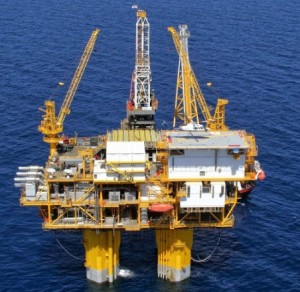IMANI report reiterates need for transparency in management of petroleum resources
 IMANI Centre for Policy and Education’s report has emphasized the need for transparency in the management of the nation’s oil and gas resources.
IMANI Centre for Policy and Education’s report has emphasized the need for transparency in the management of the nation’s oil and gas resources.
The report titled “Effects of Upstream Gas Contracting on Electricity and Inclusive Growth – The Case of Sankofa-Gye-Nyame (SGN) Gas Project,” a purely academic exercise, was conducted from 2018 to June, 2019.
It said the SGN gas deal was procured under circumstances that were not sufficiently transparent.
It would be recalled that government, the Ghana National Petroleum Corporation (GNPC) and Heliconia Ghana Limited entered into an agreement in respect of the Offshore Cape Three Points Petroleum Agreement (OCTP) governing the OCTP oil and gas project in March 2006.
The current operator, ENI Ghana Exploration and Production, was brought into the OCTP petroleum agreement in September 2009.
The report indicated that some of the resultant contract terms pose potential dire consequences in future and high gas prices might jeopardise the attainment of national goals for which the gas is being exploited.
Findings of the report were made known at a press briefing in Accra, jointly organised by Mr. Dennis Asare, Research Assistant, IMANI and Madam Barbara Andoh, Research Associate, IMANI.
According to the report, in the SGN negotiation process there were no available information on composition of the team, no publicly available records of key milestones attained and no publicly verifiable reports of negotiation meetings.
With regards to outcomes, the report mentioned terms motivated by rent-seeking, inflated service contracts and inflated development contracts.
Madam Andoh said the upstream contracting process for natural gas in Ghana had not sufficiently incorporated transparency as international best practice demand.
She said the result of this would be a gas price that might jeopardise national goals for power generation and lead to high electricity tariffs.
Mr. Asare urged the government to ensure that the methods of allocating rights to petroleum explorations were more opened; by allowing stakeholders to scrutinize the agreement before it was endorsed.
He also urged government to consider amending Acts 919 and GPR LI2359 to mandate the public disclosure of key documents related to the contracting and negotiations process.
Mr. Alex Mould, a former Chief Executive of the Ghana National Petroleum Corporation (GNPC), however, debunked the IMANI report, saying that due diligence was followed to ensure transparency in the petroleum agreement.
He said the World Bank wouldn’t have committed $700 million into the SGN gas project if it was not transparent.
Mr. Victor Kofi Sunu-Attah, Manager for Development and Production at the GNPC corroborated what Mr. Mould had said.
“On the transparency issue, there is one area, which I didn’t hear you mention and that area is the role that the World Bank played in the gas sale agreement. I think in my view, and everybody, NGOs trusts the transparency values of the World Bank. And the World Bank was central to this agreement,” he said.
Mr. Sunu-Attah said all the stakeholders who mattered in the petroleum sector in the country were involved in the negotiations of the agreement, before it was finally approved by Parliament.
Mr. Baluri Bukari, Local Content and Sustainability Manager, ENI, said before the agreement was reached, they had 43 rounds of negotiations across the globe, of which some of them were held with the World Bank.
“Today as we speak, Sankofa is producing 140 million standard cubic feet per day (mmscfd), some of which is being supplied to Tema for electricity generation,” he added.
Source: GNA
